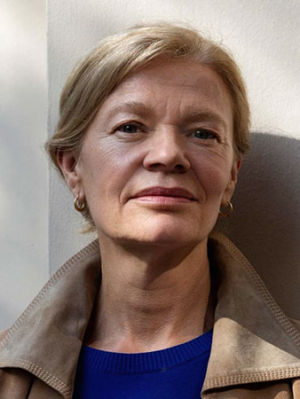Gallery
All Pictures (3)Biography
Heidi Specogna was born in Biel (Switzerland) in 1959. Initially working as a journalist, she studied at the German Film and Television Academy in Berlin from 1982 to 1988 and made her first short films there. In 1991 she founded Specogna Filmproduktion and told the story of the German-born revolutionary fighter Tamara Bunke in her documentary "Tania La Guerillera". Political themes, especially concerning the Latin American region, remained the main focus of her work over the next years. "Tupamaros" (1996), for example, was about the Uruguayan urban guerrillas of the same name, while "Zeit der roten Nelken" (2004) traced the eventful life of Nadja Bunke, Tamara Bunke's mother.
From 2003 on, Heidi Specogna began to work as a documentary film lecturer at the Film Academy Ludwigsburg, in addition to her work as a director.
Specogna's documentary film "Das kurze Leben des José Antonio Gutierrez" ("The Short Life of José Antonio Gutierrez", 2006) was of current political relevance: Gutierrez was the first U.S. soldier killed in the Second Iraq War. Based on interviews with family members and acquaintances, the film unravels the tragic story of the young "green card soldier" from Guatemala. The film was awarded the Swiss Film Prize and the German Grimme Prize, among others. Specogna also caused a stir with her next documentary feature, "Das Schiff das Torjägers" (D/CH 2010): In it, she investigated the background of a human smuggling operation in which African children were to be smuggled to Europe as laborers on a ship owned by Bundesliga star Jonathan Akpoborie.
In her next documentary "Carte Blanche" (CH/D 2011), she focused on the work of investigators of the International Court of Justice who investigate human rights violations in Uganda, Darfur, the Democratic Republic of the Congo and the Central African Republic. In the short documentary "Esther und die Geister" (2012), a contribution to the TV series "Mädchengeschichten", Specogna portrayed a teenage girl from the Central African Republic who, as a seven-year-old, was the only one to survive the murder of her family.
Specogna then explored an aspect of her film "Tupamaros" (1996), which she had made almost 20 years earlier: "Pepe Mujica - Der Präsident" ("Pepe Mujica - Lessons from the Flowerbed", 2015) is a portrait of the former Tupamaros fighter, who became known as the "poorest president in the world" due to his humble lifestyle.
A major success was "Cahier Africain" (CH/DE 2016), in which Specogna told the fate of women from Central Africa who were systematically raped by Congolese mercenaries in the course of the armed conflicts in 2002. When armed conflicts broke out again during filming, she accompanied two of the women and expanded the film into a long-term documentary project. "Cahier Africain" received numerous awards, including the German Film Award for Best Documentary, a Grimme Award, the Silver Dove at the Festival DOK Leipzig, and the Prize of the Interreligious Jury.
In 2019, Specogna began shooting her next film, "Stand Up My Beauty," about the Azmaris, a group of itinerant poets and musicians from Ethiopia who tell stories about the lives of ordinary people, enjoying the freedom to speak even uncomfortable truths. The film premiered at the 2021 Locarno Film Festival. The German theatrical release was in May 2022.
